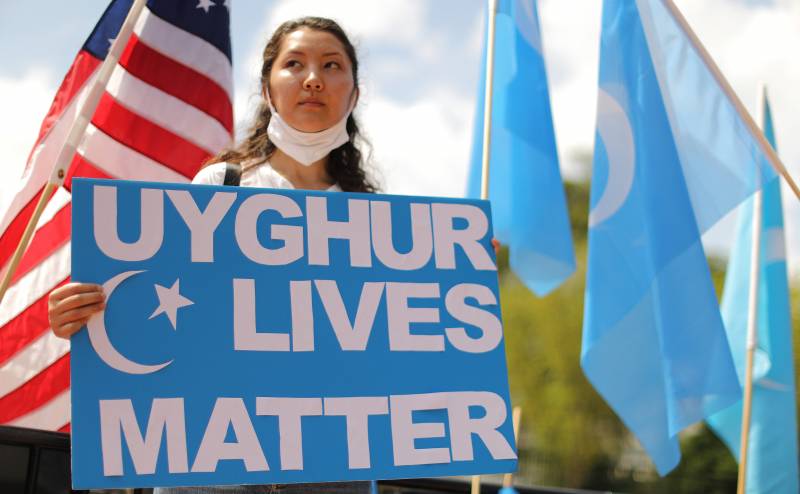The Trump administration, which has clashed with China on a range of issues including trade and the coronavirus outbreak, has also increased enforcement of a U.S. law that bans the importation of goods made with forced labor.
Under the law, the importer generally has three months to submit proof that the goods are not tainted. If not, the goods are seized and typically destroyed.
Overland, which specializes in outerwear, said an independent inspection company in China evaluated conditions at the facility in Xinjiang and determined there were no abusive conditions, said Linda Vivier, director of inventory at the family-owned company.
“Obviously, Overland wants to make sure everybody is safe and well taken care of, and that’s the reason we have this third-party inspection company that can go to each factory and make sure that everybody is being treated well and fairly and that we are in compliance,” Vivier said.
Their report has been submitted to Customs and Border Protection (CBP). They are awaiting a response and hope to retrieve the gloves.
For some Bay Area Uighurs, the recent news is a step in the right direction, but it still leaves many hoping for more awareness and action from state and national officials.
"Most of the people in the Bay Area don't know" about the plight of Uighurs in China, said Anna, who requested that her real name be withheld for fear of retribution against her family, who still live in Xinjiang. "If I meet anyone, including my neighbors, they don't know."
Anna has sporadic contact with her family, and said she can't call them, because even that could get them sent to work camps.
"It's really hard not knowing if they are OK," she said.
The Bay Area Uighur population is small, comprised of roughly 100 families. Another Uighur, Alim, who also requested that his name be withheld, has been in the Bay Area for 20 years, and said he hasn't spoken to his family for at least three years.
He's been working to educate others about what is happening in what he called "Nazi-style camps" in China, where Uighurs are imprisoned for anything from having a beard to browsing the Internet. Alim said China exploits cheap labor, including that of people incarcerated in work camps.
"That's how it works in China, and prison labor is the cheapest," he said.
Alim acknowledged that it's hard to track where a product comes from in terms of sourcing, but said, "As an American, let's demand it is not made with slave labor."
Other labor and human rights groups say it’s impossible to conduct legitimate inspections in Xinjiang — called East Turkestan by many Uighurs — because of the oppressive conditions there. The Chinese Communist Party has an intensive surveillance network as part of its campaign to force ethnically distinct minorities to assimilate into the dominant culture.
U.S. officials say it’s up to companies doing business in the United States to ensure their supply chains are free of material made under coercive conditions.
“CBP will not tolerate modern slavery in U.S. commerce,” Brenda Smith, executive assistant commissioner of the agency’s Office of Trade, said in a statement announcing the detention of the glove shipment.
A bipartisan bill that would declare that all goods manufactured in Xinjiang are the product of forced labor — and therefore banned from the country — passed overwhelmingly last month in the House of Representatives. If enacted, it could have significant effects on commerce since the region is a major source of cotton and other goods.
China has denied widespread and consistent reports of abuse and mistreatment of the Uighurs and other minorities, defending the campaign as an effort to crackdown on extremism and claiming the detention camps are for vocational and Chinese language training.
KQED's Lakshmi Sarah and Associated Press writer Martha Mendoza in Santa Cruz, California, contributed to this story.

